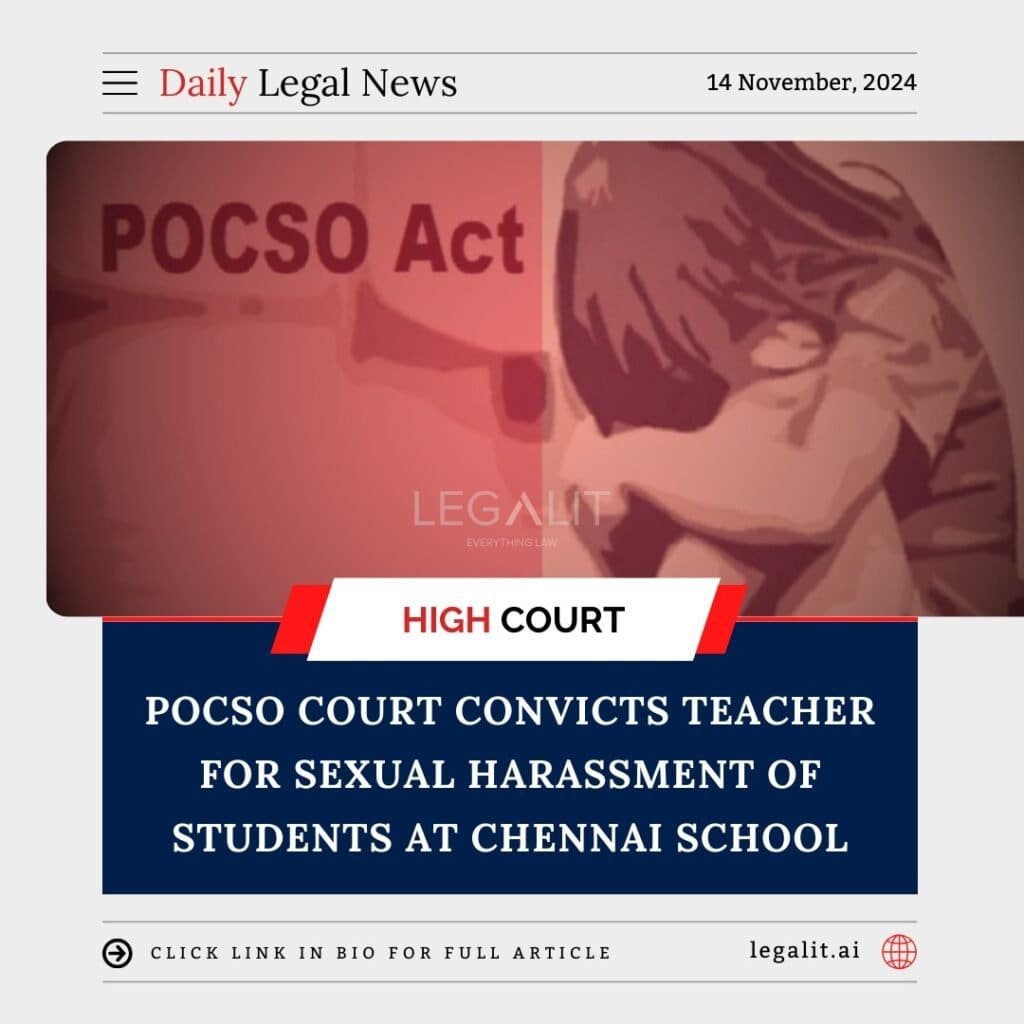
A POCSO (Protection of Children from Sexual Offences) court in Chennai has convicted a teacher for sexually harassing students at a local school, marking a significant step in the protection of minors from sexual abuse within educational institutions.
Background:
The case came to light after multiple students reported incidents of sexual harassment by the teacher, who had been employed at the school for several years. The victims, who were minors at the time, alleged that the teacher had made inappropriate advances and behaved in an inappropriate manner during school hours. The allegations were thoroughly investigated, and the teacher was charged under the provisions of the POCSO Act, which is aimed at safeguarding children from sexual exploitation and abuse.
Court’s Rationale:
The POCSO court, after reviewing the evidence and hearing testimonies from the victims, found the teacher guilty of sexual harassment. The court emphasized the need to protect children from any form of sexual exploitation, especially within educational environments that should foster a safe learning space. The court’s decision was a firm reminder of the importance of accountability for those in positions of trust and authority over children.
Existing Measures:
The POCSO Act has been instrumental in addressing child sexual abuse, providing a legal framework to ensure that victims receive justice. The act also mandates the establishment of child-friendly courts and processes to reduce the trauma faced by young survivors during legal proceedings. This case reinforces the importance of schools and educational institutions taking steps to prevent any form of abuse and ensuring the safety of students.
Conclusion:
The conviction of the teacher in this case sends a strong message about the legal system’s commitment to protecting children from sexual abuse, especially in environments where they should feel secure. It serves as a reminder to educational institutions and authorities to remain vigilant and proactive in ensuring the safety and well-being of students, while also reinforcing the need for stringent actions against those who violate children’s rights.